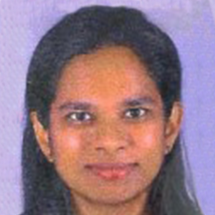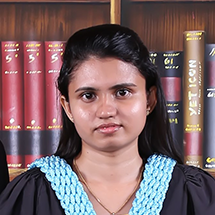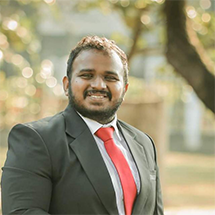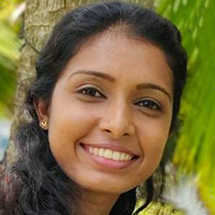Offered by the Department of Plant Sciences
Apply for MSc in Plant Cell and Tissue Culture
Plant cell/tissue culture (or ‘in vitro’ culture) involves culturing of plant cells, tissues, protoplasts etc. on special nutrient media in glass / plastic vessels under aseptic and controlled environmental conditions, and has broad applications globally, in research and commercial applications. It is an essential tool for plant regeneration and micropropagation, particularly in modern biotechnology, agriculture, horticulture, and related industry. Applications of this technology include elimination of viruses from plant tissues to obtain virus free plants, micropropagation, clonal propagation, induction of genetic variability, crop improvement through genetic engineering, production of haploids, production of secondary metabolites through cell cultures etc. The Department of Plant Sciences has been conducting the Master of Science (MSc) in Plant Cell and Tissue Culture for more than two decades.
Testimonial: MSc / MSc(Res.) in Plant Cell and Tissue Culture
A Comprehensive and Supportive Learning Experience

Sulochana Wickramasinghe
Enrolling in the MSc in plant cell and Tissue Culture program was one of the best decisions I’ve made for my career. The actual training in cutting-edge laboratories was priceless, the staff members were extremely educated and encouraging, and the curriculum was thorough. This program has equipped me with the skills and expertise needed to thrive in the field of tissue culture. I wholeheartedly recommend it to anyone looking to make a significant impact in the world of scientific research.
Nirmani Kularathne
MSc in plant tissue culture was very much interested due to proper guidance of the lecturers. This MSc included research analysis software and bioinformatics which are very much supportive.

E.P.A. Perera
I decided to follow M.Sc. in Plant Cell and Tissue culture as a future investment for my life. Actually, this degree program was a precious opportunity for me to improve knowledge and skills on plant tissue culture because of its study content. Further, I would like to appreciate the correct guidance of the lecturers who conduct this degree program. That guidance was a great strength for me to follow this program.

Shaham A. Award
I highly recommend the MSc program in Plant Cell and Tissue Culture. It was a great experience for me. The program was highly practical oriented, which allowed me to gain hands-on skills in this field. The lectures were friendly and approachable, always willing to explain concepts thoroughly. I truly enjoyed my time in the program and feel well-prepared for a career in plant cell and tissue culture.
L. Imashi Akalanka Amarawansha
As a person who is really interested in Plant Tissue Culture technology, this MSc programme was a huge opportunity. The course content is very diverse and includes practical basis knowledge. This course module gave me opportunities to learn novel facts, technologies and to have practical knowledge related to those novel things. I am very lucky to have this opportunity and very much thankful for all the lectures and University of Colombo for giving me this opportunity.

W.A.K.D. Madurangika
Master’s (MSc) degree is a gateway to numerous opportunities it gives us the wings to explore and bring out the best in ourselves. I choose MSc in plant cell and tissue culture course offered by The University of Colombo, Sri Lanka in year 2022. It has been truly invaluable learning experience through the online and onsite platform. The programme combines both theoretical and practical aspects. The level of enthusiasm displayed by all the lectures is fantastic and really contributes to the experience of the course. The course has helped me to magnify my confidence at work as it has combined with plant biotechnology. I would highly recommend this course to anyone considering pursuing a future career in Plant sciences.
Objectives
- To enhance the capacity of participants to advance their knowledge and research skills, and other abilities for higher degrees and to provide a post-graduate qualification.
- To produce experts in the field of Plant Cell and Tissue Culture for specialized professional employment, technological capacity, or entrepreneurship.
- To enhance employment opportunities in the areas of biotechnology/ agrobiotechnology, horticulture, and related research and/or training institutes.
- To generate skilled human resources, thereby assisting the development of biotechnology industry in the country.
For whom
- Graduates who are expecting to pursue M. Phil/Ph.D. studies in a related field.
- Research officers/scientists, extension officers, and educators in public and private institutions who require advanced training in Plant Cell and Tissue Culture.
- Qualified entrepreneurs and enthusiast with an interest in the field.
Eligibility to Apply
The applicant should have a Bachelor’s Degree from a recognized university*, with Botany/ Plant Sciences/ Plant Biotechnology/Biotechnology/ Agriculture as a subject
OR
Any other equivalent qualification acceptable to the Senate of the University of Colombo. The candidates will be selected based on academic merits, and an interview.
* Links for information on UGC recognized Universities/Higher Educational Institutes:
- Universities and Higher Educational Institutions (http://www.ugc.ac.lk/en/universities-and-institutes/universities.html )
- University Grant Commission (UGC) recognized foreign Universities (http://www.ugc.ac.lk/en/universities-andinstitutes/recognized-foreign-universities.html )
- UGC recognized other Universities (http://www.ugc.ac.lk/en/universities-and-institutes/other-recognizeddegrees.html)
Course Fees
MSc in Plant Cell and Tissue Culture (Part I and Part II)*
LKR 375,000/-
*Payable at the initial registration.
MSc (Research) in Plant Cell and Tissue Culture
Only the students who successfully complete Parts I and II will be eligible to proceed to Part III (research project) leading to the M.Sc. (Res.) degree program. Students who wish to proceed to Part III should make an additional payment of Rs. 125,000/– (subject to change) at the time of enrollment for Part III.
Apart from the Course Fee, the following shall be paid when applying and at the initial registration:
Application fee – Rs. 2,500/-
**Please note that fees paid are not refundable unless otherwise mentioned and can be subjected to revisions from time to time.
Important Dates
How to Apply
(The application form will be available soon)
Make sure you have scanned copies of the following documents before applying
- Copy of the bank slip (application fee of Rs. 2500/-)
- Scanned copies of relevant educational certificates
- Passport size photograph
Payment details:
- Bank: People’s Bank
- Branch: Thimbirigasyaya
- Name of account: University of Colombo
- Account No: 314012500008
Course Duration
MSc in Plant Cell and Tissue Culture: 24 months
MSc (Res.) in Plant Cell and Tissue Culture: 36 months**
- **The duration of Parts I and II of the MSc programme is 24 months while that of Part III leading to MSc (Res.) is of a further 12 months.
- Students who fail to complete Part I and Part II within 3 years from the first registration will not be allowed to register for Part III.
- The maximum period allowed to complete the degree is five (05) years from the date of first registration.
Program Structure
The programme structure has been revised according to the Master of Science By-Laws of the Faculty of Science, University of Colombo, and the guidelines issued by the Sri Lanka Qualifications Framework (SLQF 2015) of the UGC, Sri Lanka, to fulfill the criteria of degree programmes at SLQF levels 8, 9 & 10. The curriculum too has been revised to provide the most up-to-date knowledge in the field of study and facilitates graduates to be conversant in skills and knowledge to respond to contemporary needs of the profession and industry.
The Master of Science (MSc) in Plant Cell and Tissue Culture programme consists of two parts (Parts I & II), whereas the Master of Science with Research [MSc (Res.)] in Plant Cell and Tissue Culture programme consists of an additional research project (Part III):
Part – I: Course Work (25 credits)
Part – II: Directed Study (5 credits)
Part – III: Research Project (30 credits)
MSc in Plant Cell and Tissue Culture (30 Credits; SLQF Level 9)
Part I (Course work) of the programme includes theory modules, practical modules and field lessons. A student must obtain a minimum GPA of 3.0 for Part I in order to proceed to Directed Study (Part II). Students who fail to obtain a GPA of 3.0 but maintain a GPA of not less than 2.7 in Part I will be eligible* for the award of the Postgraduate Diploma (PG Dip.) in Plant Cell and Tissue Culture (25C; SLQF Level 8), upon request.
Part II (Directed Study) of the MSc programme is an independent, guided mini research project or a case study of 5 Credits. The students who successfully complete Part II with a minimum GPA 3.0 will be eligible* for the award of the degree of Master of Science in Plant Cell and Tissue Culture (30C; SLQF Level 9).
MSc (Res.) in Plant Cell and Tissue Culture (60 Credits; SLQF Level 10)
This programme includes Part III (Research Project; 30C), in addition to Parts I & II described above. To proceed to Part III, a student should achieve a GPA of 3.00 for Part II. Part III is an individual independent research project, which, with prior approval of the faculty, shall be carried out at an institution where necessary facilities are available. Students who obtain a GPA of 3.00 or above for Part III will be eligible* for the award of the degree of Master of Science (Research) in Plant Cell and Tissue Culture (60C; SLQF Level 10).
A student who fails to achieve a GPA of 3.00 or above for Part III will be eligible* to be awarded the degree of Master of Science (MSc) in Plant Cell and Tissue Culture, upon request.
* In addition to the GPA requirements, to be eligible for the award of the MSc (Res.)/ MSc Degree or the PG Diploma in Plant Cell and Tissue Culture, a candidate must have fulfilled any other general requirements as prescribed by the relevant By-Laws and Rules and Regulations of the University of Colombo.
Course Modules
PART I
Semester I
| Course Code | Name | Credits | Note |
|---|---|---|---|
| MTC 5109 | Plant Growth and Development | 1C | 15L |
| MTC 5110 | Plant nutrition and growth regulators | 1C | 15L |
| MTC 5111 | Principles of plant tissue culture technology | 1C | 15L |
| MTC 5112 | Tissue culture media and tissue culture environment | 1C | 15L |
| MTC 5113 | Laboratory design and management | 2C | 20L, 20P |
| MTC 5114 | Molecular gene technology | 2C | 30L |
| MTC 5115 | Biosafety, Bioethics and IPR | 1C | 15L |
| MTC 5116 | Practical Module I | 4C | 120L |
Semester II
| Course Code | Name | Credits | Note |
|---|---|---|---|
| MTC 5209 | Data analysis and computer applications in tissue culture | 2C | 30L |
| MTC 5210 | Scientific communication | 1C | 30P |
| MTC 5211 | Cell culture and natural products | 1C | 15L |
| MTC 5212 | Tissue culture in crop improvement | 1C | 15L |
| MTC 5213 | Commercial tissue culture | 2C | 30L |
| MTC 5214 | Entrepreneurship | 1C | 15L |
| MTC 5115 | Practical Module II | 4C | 120P |
Total credits for Part I (equivalent for SLQF Level 8) – 25C
PART II
Semester III
| Course Code | Name | Credits | Note |
|---|---|---|---|
| MTC 5303 | Directed Study | 5C | 15OP |
Total credits for MSc (PART I + II; SLQF Level 9) – 30C
PART III
Semester IV
| Course Code | Name | Credits | Note |
|---|---|---|---|
| MTC 4501 | Research Project | 30C | 12 months |
Total credits for MSc (PART I + II; SLQF Level 9) – 30C
Mode of Learning
- Lectures and practicals will be conducted on Friday evenings (3 – 6 pm) and Saturdays (8 am to 5 pm).
- Blended mode (both online and on-site) will be used to deliver the theory lessons (and some practical component where applicable), discussions and tutorial classes. Practical modules will be conducted mainly through laboratory work and some field visits.
- In a theory module fifteen lecture hours is considered as one credit (1C) and in a practical module thirty hours of laboratory/ field work is considered as 1C.
- The estimated amount of study time or the commitment expected (= ‘Notional learning hours’) from an average student to achieve the intended learning outcomes of a 1C theory or practical module is ~ 50 hours. For a research module 1C is equivalent for ~ 100 notional hours.
Medium of Instruction
The medium of instruction as well as that of assessments/examinations shall be English, and the medium for correspondence shall also be English.
Course Evaluation
- Theory modules – written examinations and assignments
- Practical modules – practical assessments, assignments/ continuous assessments
- Seminars – presentations
- Directed Study – written report, presentation and viva-voce examination
- Research Project – written research proposal, progress presentations, dissertation, viva-voce examination, and manuscript
Further Information
Further information regarding the MSc Program can be obtained by contacting the program coordinator.
Contact details of the programme coordinators are as follows.
| Intake | Coordinator | Mobile | Phone(Office) | |
|---|---|---|---|---|
| 2022 | Dr. Pradeepika Saputhanthri | pradee@pts.cmb.ac.lk | 0718565305 | 0112585038 |
| 2023 | Prof. Dharshani Bandupriya | dbandupriya@pts.cmb.ac.lk | 0777638560 | 0112585038 |
